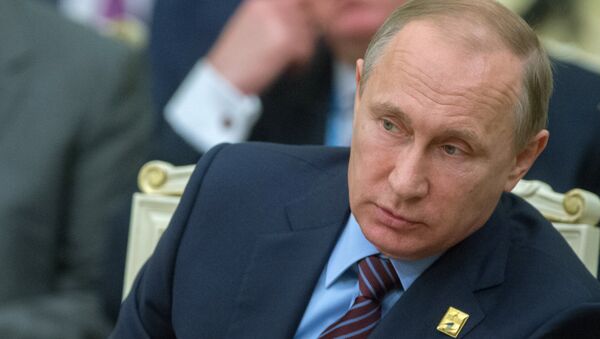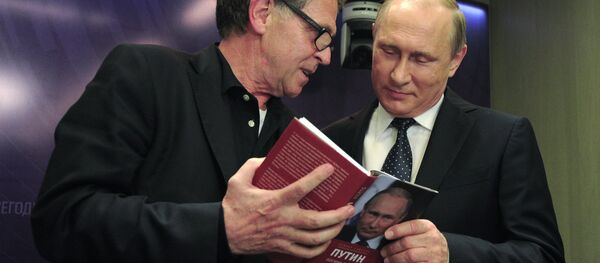In his work, Hubert Seipel tried to get the Russian leader's genuine thoughts and intentions across to German readers.
"Over the course of several years Putin's image in the West has become a giant projection of evil: no matter what bad things are happening in Russia — the blame is attributed to Vladimir Putin. I don't know any other politician worldwide who could have become such a projection," the author told Sputnik. "We should move away from this image, and trace the central problem — interests. After all, there are different and very specific interests behind everything."
"Russia has chosen its path because of its unique historical background. If your expectations are not met because there are someone's other interests, you feel disappointment, and conflict arises. The fact that it was about the illusory expectations is another story," Seipel said.
"The West often behaves like the Catholic Church in the 19th century, which believes that the whole world must adhere to its ideas. At least until its missionaries encountered such a ‘granite' as Russia," the author concluded.
The book focuses on Vladimir Putin's relations with German Chancellor Angela Merkel, Russia and Western geopolitics, US claims to global supremacy, the standoff in Syria, the conflict in Donbass, the 2014 downing of a Malaysian jet in eastern Ukraine and others.
The 300-page opus opens with "The Evil Empire and Well-Wishers" preface and ends with an epilogue aptly titled "Cold Peace."




